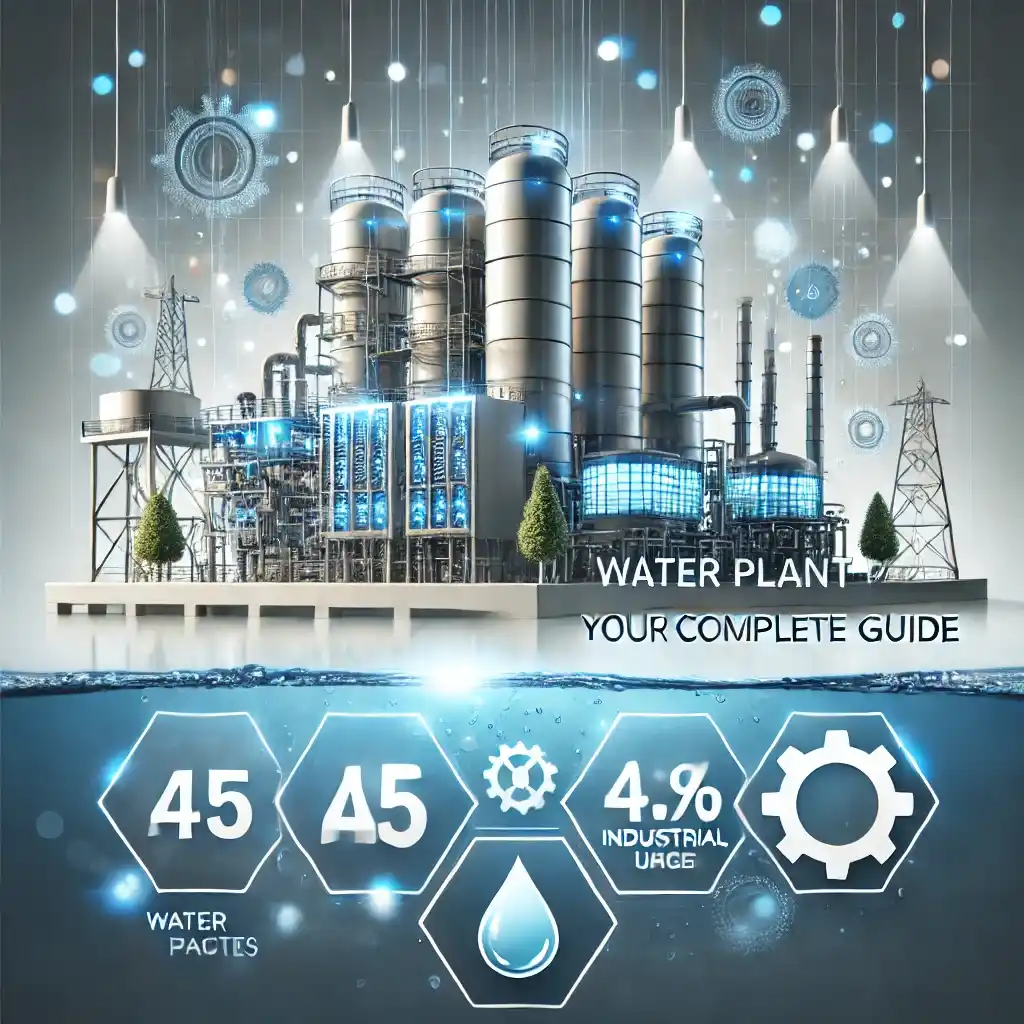

Water Plant Price
In today’s world, access to clean and safe water is essential for both residential and industrial purposes. Water treatment plants are essential for ensuring high-quality water. They serve a crucial role in industries, commercial establishments, and even homes. If you’re planning to invest in a water treatment system, understanding the price dynamics is crucial. In this blog, we’ll break down water plant prices, highlight the key factors that influence these costs, and explore top options in the market.
What Affects the Price of a Water Treatment Plant?
The cost of a water treatment plant can vary significantly depending on several factors:
-
Capacity of the Plant: Larger plants typically cost more than smaller ones due to their higher output.
-
Material of Construction: Durable materials like stainless steel can raise the price compared to FRP.
-
Automation Level: Automated systems with advanced features tend to be pricier than manual ones.
-
Additional Features: Customizations and added functionalities like UV sterilization also influence the overall cost.
1. Capacity of the Plant
The capacity of the water plant, measured in liters per hour (LPH), is one of the primary factors influencing its price. For instance:
-
Smaller units like the 200 LPH Mineral Water Plant are ideal for small-scale applications.
-
Larger systems, such as the 10,000 LPH Industrial Mineral Water Plant, cater to heavy-duty industrial needs.
2. Material of Construction
The material used to construct the plant impacts its durability and cost. For example:
-
FRP (Fiber Reinforced Plastic) units like the 250 LPH Commercial RO Water Plant are lightweight and affordable.
-
Stainless steel systems, such as the 4000 LPH Stainless Steel Water Plant, offer superior durability and resistance to corrosion.
3. Automation Level
Automated systems tend to be more expensive than manual ones due to advanced technology and ease of use. For instance, the 200 LPH Automatic Mineral Water Plant is designed for hassle-free operation.
4. Additional Features
Features like UV sterilization, energy efficiency, and advanced filtration systems can also impact the price. Customized systems tailored to specific water treatment requirements may come at a premium.
Best Water Plants to Consider for Your Needs
Choosing the right water plant can feel overwhelming, but we’ve got you covered. Here’s a curated list of high-quality water plants to suit various applications and budgets:
1. 200 LPH Mineral Water Plant
-
Price Range: Affordable
-
Key Features:
-
Automatic operation
-
Compact design for small-scale applications
-
Reliable filtration system
-
-
Product Link: 200 LPH Mineral Water Plant
2. 250 LPH Commercial RO Water Plant
-
Price Range: Moderate
-
Key Features:
-
FRP construction for durability
-
Ideal for medium-scale commercial use
-
Single-phase power supply
-
-
Product Link: 250 LPH Commercial RO Water Plant
3. 500 LPH FRP RO Water Plant
-
Price Range: Moderate to High
-
Key Features:
-
Designed for industrial applications
-
Energy-efficient
-
Robust FRP material
-
-
Product Link: 500 LPH FRP RO Water Plant
4. 4000 LPH Stainless Steel Water Plant
-
Price Range: High
-
Key Features:
-
Stainless steel construction for enhanced longevity
-
Suitable for large-scale industrial use
-
Three-phase power supply for high efficiency
-
-
Product Link: 4000 LPH Stainless Steel Water Plant
5. 10,000 LPH Industrial Mineral Water Plant
-
Price Range: Premium
-
Key Features:
-
High capacity for extensive industrial applications
-
Advanced filtration technology
-
Durable and reliable performance
-
-
Product Link: 10,000 LPH Industrial Mineral Water Plant
Why Invest in a Water Treatment Plant?
Investing in a water treatment plant offers multiple benefits. For instance, studies show that businesses using advanced water treatment systems can reduce operational costs by up to 30%.
-
Cost Savings: Reduce reliance on bottled water or external suppliers.
-
Environmental Benefits: Minimize plastic waste and conserve resources.
-
Consistent Water Quality: Ensure safe and clean water for various applications.
-
Customization: Tailor the system to meet specific needs, such as industrial-scale filtration or compact designs for limited spaces.
How to Choose the Right Water Plant?
When selecting a water treatment plant, consider the following:
-
Purpose: Identify whether the plant is for industrial, commercial, or residential use.
-
Capacity Needs: Assess your daily water consumption to choose an appropriate LPH rating.
-
Budget: Factor in both initial investment and long-term maintenance costs.
-
Reputation of the Manufacturer: Opt for reliable brands with proven track records.
Conclusion
Understanding water plant prices is key to making an informed investment. From small-scale operations to large industrial setups, knowing the right options can save costs and ensure reliable water quality. Start exploring top-rated water plants today to find the one that fits your needs best! Whether you need a compact system for a small business or a high-capacity unit for industrial use, there’s a solution tailored to your requirements. Explore top-quality water plants from trusted manufacturers and enjoy the benefits of clean, safe, and cost-effective water.
Take the first step towards a sustainable water solution by checking out these recommended products:
With these options, finding the perfect water plant at the right price is easier than ever!